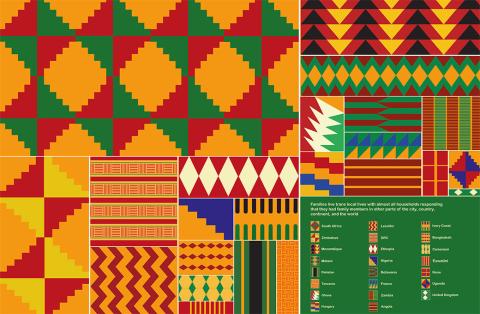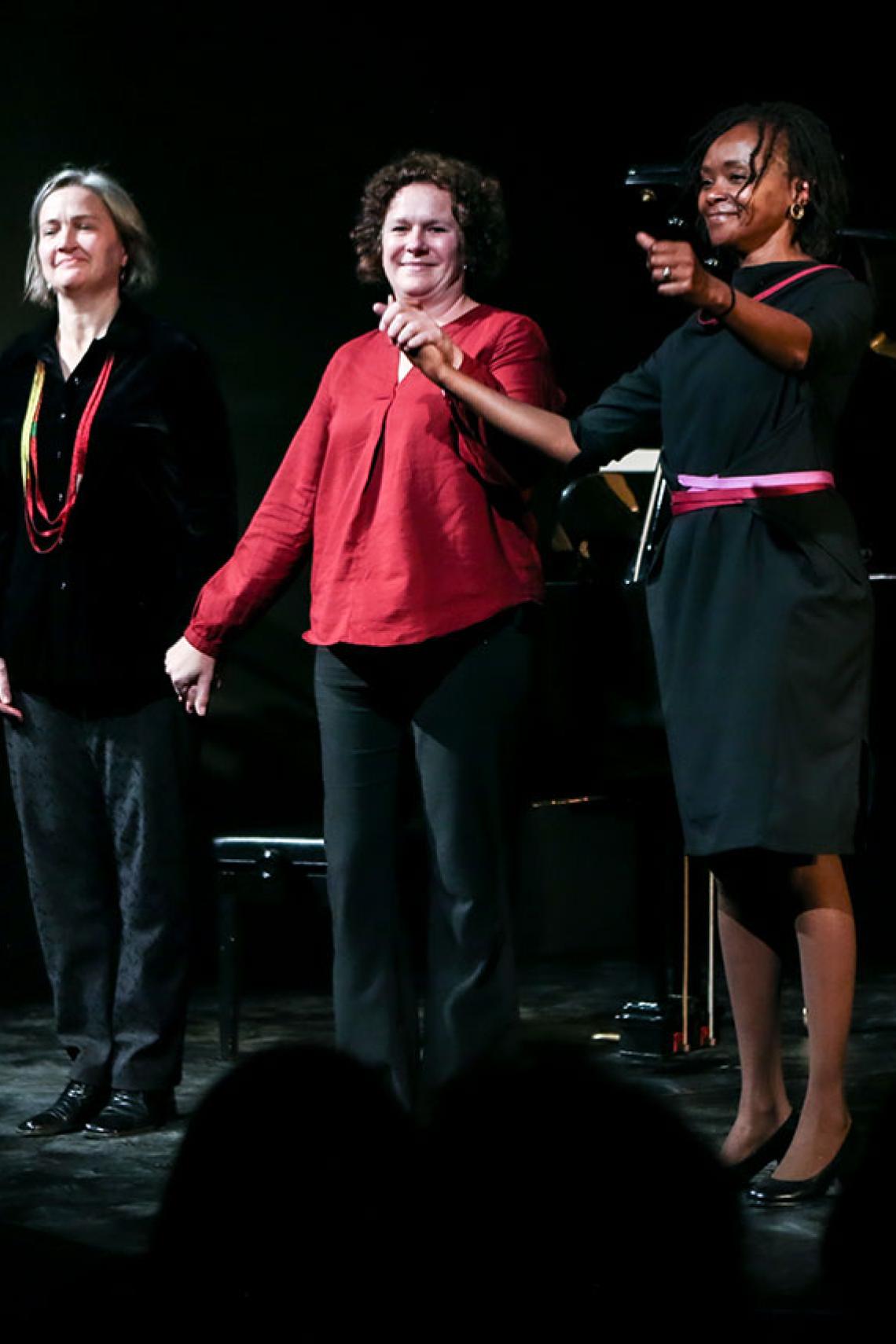Venice Architecture Biennale installation gives voice to migrant women in Johannesburg
An installation at the Venice Architecture Biennale which opens this month combines social science data with film, composition, performance and art to bring to life the voices of migrant women in Johannesburg as collected by ODID Visiting Fellow Caroline Wanjiku Kihato.
The installation, You Will Find Your People Here, is featured as a Curator’s Special Project under the theme of Gender and Geography. This year’s biennale is curated by academic, educator and novelist Lesley Lokko, the first curator of African descent, and more than half the Biennale’s participants are from Africa or the African diaspora.
In line with the exhibits overall theme, ‘laboratory of the future’, the installation is an important intervention in unsettling narratives about African migration and urbanisation, intending to demonstrate how mobility refashions cities, families, and politics in ways we are only beginning to recognise.
The installation consists of a filmed performance of a work of ‘vocalising piano’ by composer Clare Loveday and pianist Mareli Stolp, which combines piano, spoken word, and vocal utterances to produce an immersive soundworld that interprets the words of migrant women who have traveled from the Democratic Republic of Congo, Zimbabwe, Rwanda, and Malawi to Johannesburg.
The work is a creative response to the testimonies collected in Dr Kihato’s book, Migrant Women of Johannesburg: Everyday Life in an in-between City.
“You Will Find Your People Here amplifies the experiences of migrant women in Johannesburg, a global city remarkable for its affluence, inequity, and diversity,” Dr Kihato explains. “Roughly one in two Johannesburg residents were born elsewhere, one in five outside the country. In the city’s gateway neighbourhoods, few plan to stay. Lives are shaped by transience, ambition, uncertainty, and anxiety. In the shadows of repurposed office blocks, new arrivals dodge predatory police and hostile citizens. As they negotiate the unfamiliar, they continually refashion the space around them.”

One of the fabric panels, exploring family connections
The installation also features three fabric panels exploring language diversity, family connections and women’s mobility to Johannesburg created by artist Awo Tsegah, drawing on data from the Oxford-Wits mobility lab. The panels reference typical African fabrics – East African Khanga, the Southern African Shewshwe, and the Ghanaian Kente – to convey the continent’s diversity and the portability of domestic space.
The Venice Biennale runs from 20 May to 26 November.

